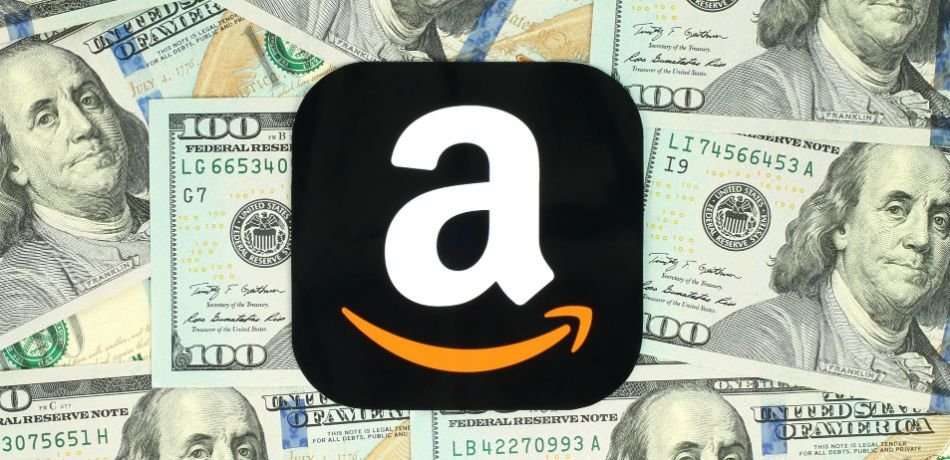'For states contemplating tax incentives for Amazon, the salient question is: what do you give a tax avoider who already has everything?'
According to CNN Money, Amazon founder and CEO Jeff Bezos is officially the richest person of all time. Why wouldn’t he be, when his company made more than $5 billion in 2017 and didn’t pay a dime of federal income taxes?
This is evident from Amazon’s Form 10-K, which is an annual report required by the U.S. Securities and Exchange Commission (SEC), meant to give a summary of a company’s fiscal performance
In a blog post published on the Institute on Taxation and Economic Policy’s official website, Matthew Gardner, senior fellow at the institute, detailed what he calls Amazon’s “decades-long strategy of exploiting state sales tax loopholes.” During the previous five years, Gardner asserted, Amazon paid a federal income tax rate of just 11.4 percent. During the same time period, the company reported profits of $8.2 billion.
The Institute on Taxation and Economic Policy (ITEP) is a non-partisan think tank that works on state and federal tax policy issues
Furthermore, according to the same institute, the Trump administration’s corporate tax cuts — although they have taken effect on January 1 — include a special clause for companies that have managed to postpone past tax liability. The clause, which essentially rewards companies like Amazon for postponing the taxation of their income, is the source of Amazon’s $789 million windfall.
In September 2017, Amazon announced that it would be building a second headquarters. As Quartz reported, Amazon initially received 238 bids from cities all over the United States, but narrowed the list down later on. This caused a bidding war, with participating cities competing against each other, offering tax breaks, free land, and various incentive packages. Only a few politicians have spoken up against this, most notably Rohit Ro Khanna, U.S. Democratic representative for California’s 17th congressional district, who told The Intercept, “The cities should not compete against each other in a race to the bottom. It’s absurd for the taxpayers to offer subsidies to one of the richest companies in the world.”
Matthew Gardner is of similar opinion.
“For states contemplating tax incentives for Amazon, the salient question is: what do you give a tax avoider who already has everything?”
The Nation‘s Stacy Mitchell, meanwhile, believes that Amazon does not yet have everything, but it certainly aims to. In her words, “Amazon doesn’t just want to dominate the market — it wants to become the market.”
In an extensive report, Mitchell criticized the tech giant’s monopolistic tendencies, as well as the lack of government intervention, quoting Chamath Palihapitiya, a venture capitalist and owner of the Golden State Warriors, who said that Amazon is a “multitrillion-dollar monopoly hiding in plain sight.”
According to Statista, Amazon’s market value is in the neighborhood of $427 billion, which makes it the fourth most valuable company in the United States, after Apple, Alphabet, and Microsoft.

ehImCanadian on March 4th, 2018 at 04:36 UTC »
Accountant(CPA) Here:
Amazon hasn't been making a profit but they've had a lot of revenue, they hence are given a carryforward for the difference meaning they can carry forward their loss into future years to offset taxable amounts.
Examining their Public Financial Reports will find:
Overall:
The ignorance of this "reporter" shows they did no research or even asked "why" this was happening.
EDIT: Explanation/Answers
Assumptions: Tax rate is 40%
You own a company that you start up in 2014 called Company XY because of first year expenses purchasing equipment, offices, etc you run a loss of ($100) in 2015 you pick up steam and make a taxable income of $105, you would assume they would pay $42 in taxes($105*.40) but because of the loss in 2014 you carryforward the amount the taxable income falls to $5(105-$100) meaning taxes owed are actually $2.
Why does the government allow this?
1) A lot of new companies don't make a profit the first year and if they didn't have these rules banks would never invest into small business.
2) Every country has recessions and every industry has slow periods
Question: What's stopping companies from just running loses and paying CEOs
1) Because having a loss is a bad thing carryforwards are just a tool to mitigate it, some companies are beneficiaries of it from subsidiaries but it's extremly rare and lucky it works out just right.
2) The CEO would still be taxed on personal income rates.
wdomon on March 4th, 2018 at 02:10 UTC »
I read the SEC form they filed but I’m not seeing where they’re pulling $0 for US income taxes in 2017. Not saying it isn’t true, because I’ve never read an SEC form before. But I’m generally interested in this as a talking point surrounding tax reform; can anyone show me where on the SEC form they’re showing $0?
beef-o-lipso on March 4th, 2018 at 00:37 UTC »
That's not the tax breaks Amazon is looking for. They want a break on property taxes and other municipality taxes as a result of incentive to being a big employer.
And they are not alone. Cities regularly give incentives to big companies to build.